"Breathe in with your sadness and stand up,
And depart to the north,
There is no honor for a prophet in his own home"
— Saad Al-Yasiri
I never thought that one day I would long for Khartoum, while I was the one who has always complained over and over again about being confined between its two Niles, unable to break free. The city is surrounded by high walls, tightly constructed, as if journalism and politics were "centralized crafts" tailored for the city, while the surrounding regions remained mere recipients without the power to influence or make an impact.
Despite my numerous exits from the capital to the outskirts of the regions for social and work-related reasons, it was only a few weeks ago that I left for the first time as a displaced person, fleeing with my family, carrying small-sized bags and personal belongings. I left behind my house and an old car empty of fuel, and some meager household items, now all plundered by the chaos of senseless wars and the thousands of escaped criminals.
None of my persistent attempts succeeded in persuading my small family to go and leave me behind, so that I could continue my profession of seeking trouble and the mission of guarding the house. Every conversation we had ended with a phrase similar to the statements of military leaders in Hollywood war films: "We will all leave, and no one will be left behind."
As the sound of gunfire and artillery drew near to our residence, situated close to the Halfaya Bridge that connects Khartoum and Omdurman, which became a target for the warring factions, the final decision was made: "We will all leave", despite being fully aware that the same road is fraught with dangers, as we will have to cross the blazing Khartoum from its northernmost point to its southern end, before reaching the state of Al-Jazirah, south of the capital.
I never thought that one day I would long for Khartoum, when I was the one who has always complained over and over again about being confined between its two Niles, unable to break free from a city surrounded by tightly-constructed high walls
The journey
We distributed some canned food and leftover vegetables from our home to a few neighbors who chose to stay amidst a significant decline in food supplies and drinking water being cut off. We advised those who insisted on staying to check up on our house as much as they could, while my wife recited Quranic verses in different corners of the house for protection, in hopes to find it intact upon our return, which we hoped would be soon.
After bidding our farewells, we set off on foot towards the area near the bridge, which had turned into a main station for transporting residents out of the capital, contrary to its usual function of transporting passengers between the three cities of the capital: Bahri, Omdurman, and Khartoum.
Amidst the chaos and a great rush, along with hundreds of other people seeking to flee, we managed to secure three seats on a passenger bus heading to the capital of Al-Jazirah State, Madani.
Our primary challenge at the time was being able to afford the cost of the journey, as banking applications had stopped functioning, making it impossible to access the modest savings that remained from my salary for the month of March, which had quickly evaporated between Ramadan and Eid al-Fitr alike.
After a lengthy discussion, my wife was forced to sell our wedding ring, after rejecting the idea of selling my personal phone or my laptop, both of which were essential for my work and communication with the outside world.
The ticket price to Madani, the capital of the neighboring Al-Jazirah State, reached 30,000 Sudanese pounds, for a trip that until April 14 cost only between 3,000 and 4,000 pounds. The vehicle owners justified the price increase due to fuel scarcity and unsafe roads, but all the bus passengers knew deep down that this was just the "business of crises".
The exchange rate for the dollar had closed at 600 pounds against the national currency in official bank transactions on Thursday, April 13th, only 48 hours before the outbreak of the war.
The bus carrying us, alongside dozens of public and private vehicles, navigated side asphalt roads within the city of Bahri, where burnt cars and bloated corpses were scattered on its sides. Some of Hemefti's soldiers were wandering on foot or riding in armored vehicles.
Despite regularly leaving the capital for work, a few weeks ago I left for the first time as a displaced person, fleeing with my family. I left behind my house and an old car, now all plundered by the chaos of senseless wars and thousands of escaped criminals
As we passed, we noticed the empty streets of Al-Halfaia and Shambat, devoid of movement, except for a few individuals amd passers-by who had fear etched onto their faces as they were preoccupied with securing water for their families due to the damages that affected water and electricity networks.
The darkest scene I witnessed, even darker than the war itself, was when we passed through the industrial area, which housed major local factories and some branches of commercial banks. Widespread looting and extensive destruction had taken place, leaving behind a landscape of chaos and despair.
As the fires spread, we witnessed cars, motorcycles, buggy-drawn transport vehicle, and people (young, women, and children) carrying anything that could be taken, including belongings, furniture, cooking gas cylinders, and even empty barrels, in the absence of any signs of the government and amid an unprecedented state of chaos.
It is certain that Sudan has suffered a significant loss of food and medicine stocks. Its vital grain mills have been destroyed, and its food production factories are out of service. Most owners of these establishments are likely to refrain from reopening them to avoid further losses, the military's reckless actions and fascist criminal behavior.
As we exited, I noticed a large number of thieves converging on one of the entrances to the banks' branches that served the factories operating in the area. They approached the closed gate, using primitive tools in their attempts to break through.
As we crossed into the area east of the Nile, we observed a heavy deployment of Rapid Support Forces (RSF) in the main streets. Amidst them, a surprising number of citizens moved about, going to bakeries and shops as if it were a normal day.
During the journey, we saw no signs of the government or the military belonging to the army. We only saw the RSF and their checkpoints set up on the main roads, with a significant leniency as they merely asked drivers about their destinations before allowing them to pass. At least that was the case when we passed, despite the horror stories circulating about car thefts, stolen phones, and even killings being done at security checkpoints.
When we passed Soba (southeast of the capital), the last military presence we witnessed came to an end. It consisted of RSF vehicles stationed at the entrance of the city's main bridge over the Blue Nile. A feeling of joy overwhelmed us, similar to the joy that must have engulfed some members of the American diplomatic mission after leaving Iranian airspace following a successful escape during the occupation of the US embassy in Tehran in the 1980s.
A glimmer of hope
We left Khartoum in search of security but left it with serious concerns about the future of a nation shaped by the military and where criminals and brokers move freely.
The grim image imprinted in our minds was not alleviated by the sight of villagers gathering between the states of Khartoum and Al-Jazirah, distributing food and drinks to those fleeing the war and offering to host them in their homes, especially those who had no money or relatives outside the capital.
State crises
Sudanese states, including Al-Jazirah, are experiencing a significant influx of migrants from Khartoum, leading to a staggering increase in apartment and housing prices. This situation has created a fertile ground for opportunistic brokers who seek to profit from the plight of the displaced individuals.
Brokers have also made an appearance in the fuel and commodity trade, lining up in long queues with their vehicles in front of operational stations to buy the strategic commodity, namely gasoline, for less than 3,000 pounds per gallon and sell it in the black market for 30,000 pounds. Consequently, this has caused an increase in transportation fares within the region and between states. Meanwhile, all food products have witnessed a significant jump in prices in the markets due to growing demand and limited supply.
The problems extend beyond the economic sphere, with a significant shortage of electricity and frequent disruptions in the internet network.
We left Khartoum in search of security but left it with serious concerns about the future of a nation shaped by the military and where criminals and brokers move freely
Love despite all the ruin
Previously, I had yearned to escape Khartoum, with its heavy presence of armies and armed factions, the city's population teeming with politicians, looters, thieves, and crisis merchants. But now, I wish I could return to it for no reason other than realizing that I love this city even in its recent ruin.
* The views and opinions expressed in this article are those of the author’s and do not necessarily reflect the official policy or position of Raseef22
Raseef22 is a not for profit entity. Our focus is on quality journalism. Every contribution to the NasRaseef membership goes directly towards journalism production. We stand independent, not accepting corporate sponsorships, sponsored content or political funding.
Support our mission to keep Raseef22 available to all readers by clicking here!
Interested in writing with us? Check our pitch process here!
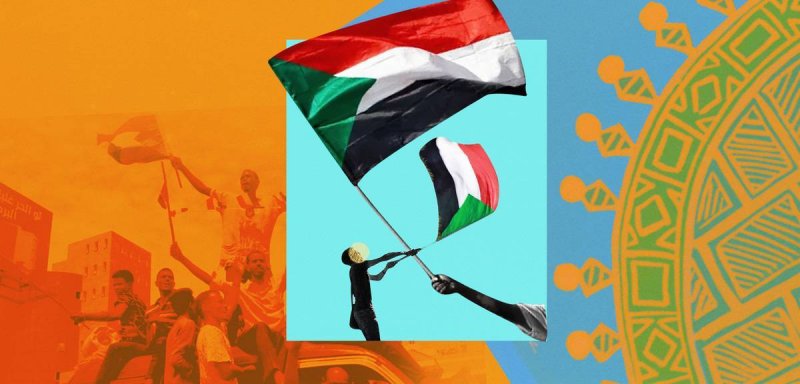
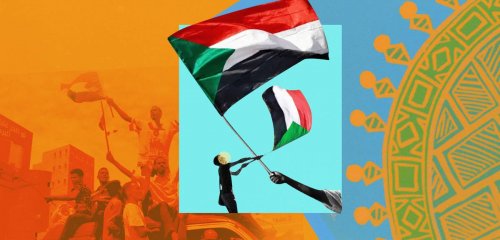
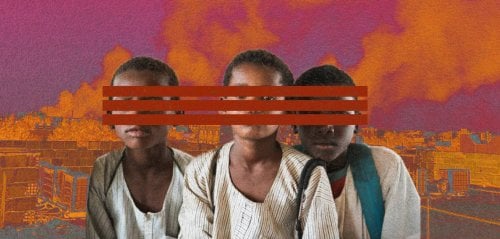
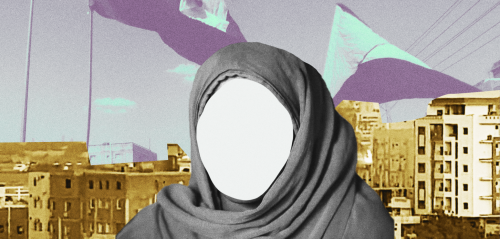
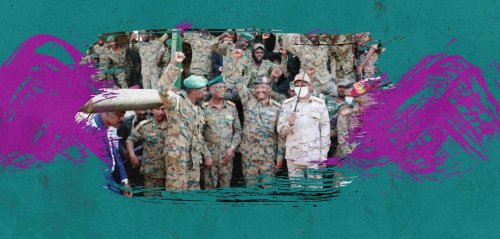



Join the Conversation
ذوالفقار عباس -
1 hour agoا
Hossam Sami -
2 hours agoصعود "أحزاب اليمين" نتيجة طبيعية جداً لرفض البعض; وعددهم ليس بالقليل أبداً. لفكرة الإندماج بل...
Anonymous user -
1 day agoرائع و عظيم ..
جيسيكا ملو فالنتاين -
5 days agoزاوية الموضوع لطيفة وتستحق التفكير إلا أنك حجبت عن المرأة أدوارا مهمة تلعبها في العائلة والمجتمع...
Bosaina Sharba -
1 week agoحلو الAudio
شكرا لالكن
رومان حداد -
1 week agoالتحليل عميق، رغم بساطته، شفاف كروح وممتلء كعقل، سأشاهد الفيلم ولكن ما أخشاه أن يكون التحليل أعمق...